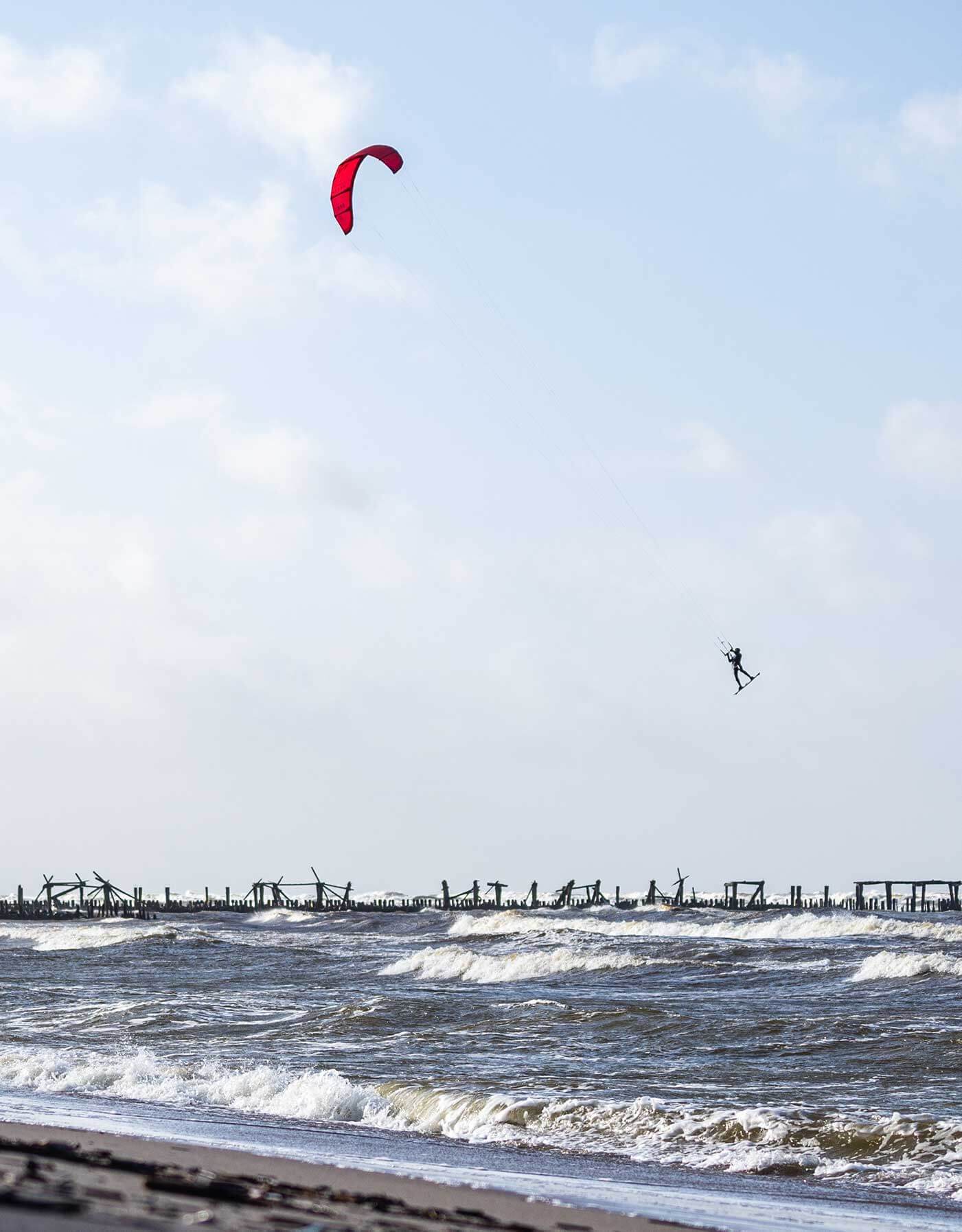Comparisons between running a business and playing a sport aren’t new. There are lots of different think pieces out there that compare business to everything from football to soccer to baseball. But aside from all the benefits to be learned from being part of a team, solo sports offer much value, too.
Nearly every weekend, you can find me on the coast, catching waves and air. I’m a kiter, which means I have just a board and a kite to navigate the water, tides, and wind.
And while there’s no doubt we can learn lessons in teamwork, patience, and endurance from those team sports, there’s a lot to be learned from my sport, too, particularly when it comes to business.
Here are five business skills that I’ve learned or enhanced by kiteboarding.
1. Negotiation
You can’t move a wall of water or avoid unpredictable gusts of wind when you’re kitesurfing. Instead, you must learn to work with the elements rather than against them. For example, learning the maneuvers necessary to absorb a sudden impact while staying on your board is crucial.
While there are many variables under our control in business, we can’t control intangible events, just like we can’t control the waves at sea. Look at the COVID-19 pandemic, for example. Successful brands were able to navigate the uncertain pandemic landscape by figuring out how to adjust quickly. Brands that couldn’t adapt or ignored the new reality were unable to stay afloat.
2. Committing to quick decisions.
In kitesurfing, there is a movement known as a “kite loop” in which you first launch yourself into the air then loop your kite in a circular motion, providing immense power and pulling you horizontally, only to land safely back onto the water’s surface.
The key to success is commitment to fully looping your kite in the air in order to lower yourself back down safely. If you quit halfway, you can fall from the sky without the kite’s support and end up with anything from a face full of water to a broken rib.
Here’s an example:
In business and marketing, sometimes you also have to commit to making a quick decision and following through, no matter the consequences. For example, if you’re trying to generate leads for your business, you don’t have time to painstakingly consider every option. Instead, you’re better off launching a marketing campaign now and optimizing later. Even if you fail, you will likely learn a lesson and be one step closer to success
3. Don’t filter the world around you.
In the water, you have to see the situation around you with a clear head. Wind, tides and weather conditions can all change without notice, and you need to pay attention in order to react.
Marketing is no different. At Cardwell Beach, we believe in taking a data-driven approach to marketing strategy. Data allows us to view our work with a sense of discipline and rigor. If campaigns aren’t performing, we know we need to make adjustments. And if our efforts are paying off, there are always areas to be improved.
It’s easy to live in a world where we downplay reality. We believe reacting honestly in the moment is the healthier approach for ourselves and our clients.
4. Accept that risk is necessary to progress.
One of the most important lessons I’m reminded of while kitesurfing is that some level of risk is necessary to progress forward in the sport. I can’t improve my form unless I am willing to push my limits.
Marketing is the same way. In order to grow your business, you must accept the risk that even the best-laid marketing campaigns may not work out exactly as you had hoped. But without taking that risk, you can never grow and move forward.
Like kitesurfing, you can only improve your marketing through trial and error, careful adjustments, and a willingness to try something new, even if you’re intimidated.
5. Keep your ego in check.
At Cardwell Beach, one of our mottos is “no egos.” This means that our work is focused on client success, not our own accolades or achievements. Instead, we put our effort towards a disciplined process that allows us to continue to grow, sharpen our skills, and perform better for clients over time.
The “no egos” lesson is quickly learned in kitesurfing and other extreme sports. If you become overconfident and let your ego get out of control, a wave or gust will humble you. Alternatively, if you lack confidence, you won’t be able to execute the moves necessary to stay upright on your board and move forward.
That’s why it’s important to approach your marketing with a growth mindset. Focus less on flashy headlines and more on the fundamental metrics that indicate long-term success for your brand and business.
Oh, and lesson number 6? When in doubt, hit the beach.

